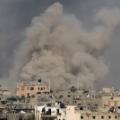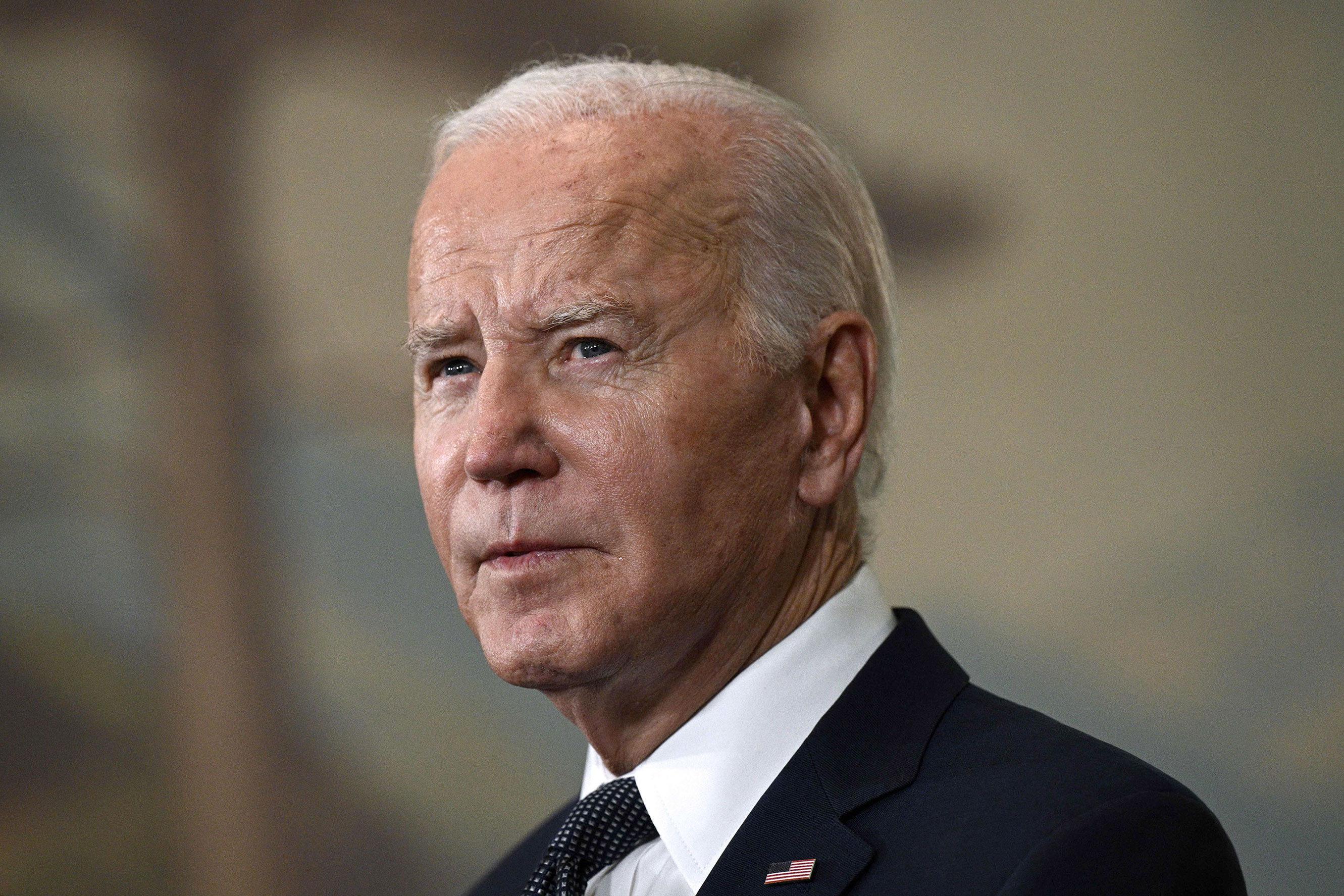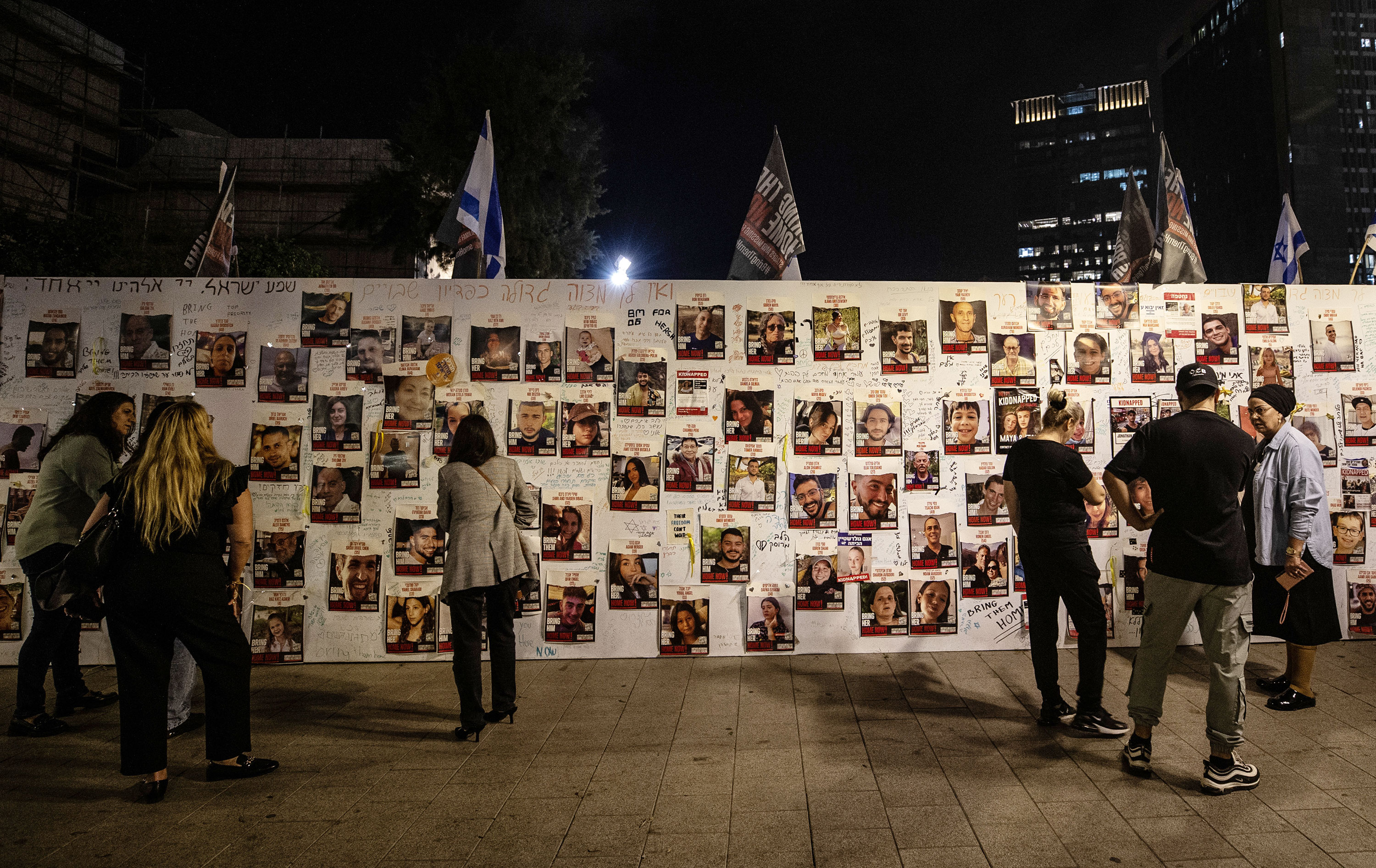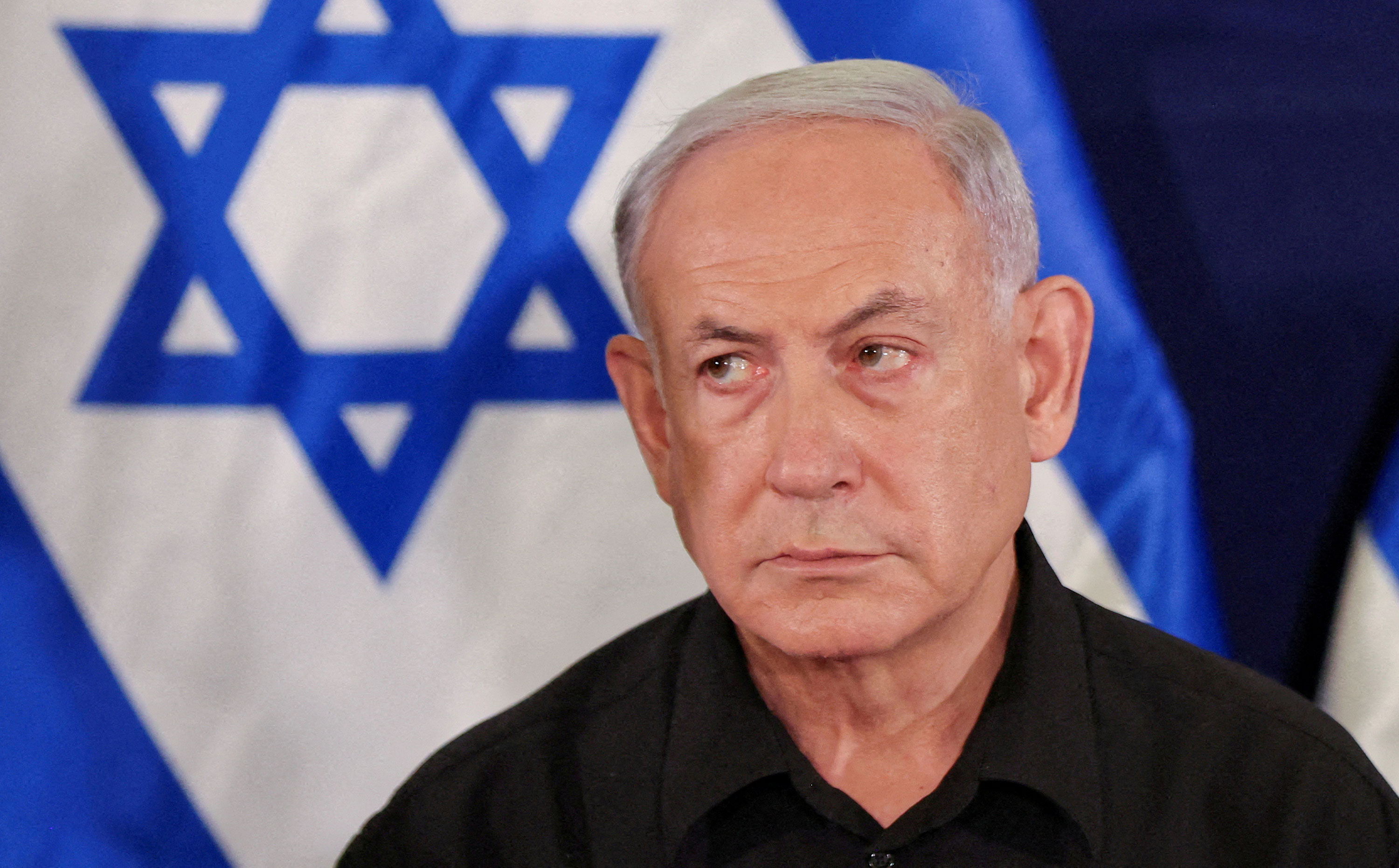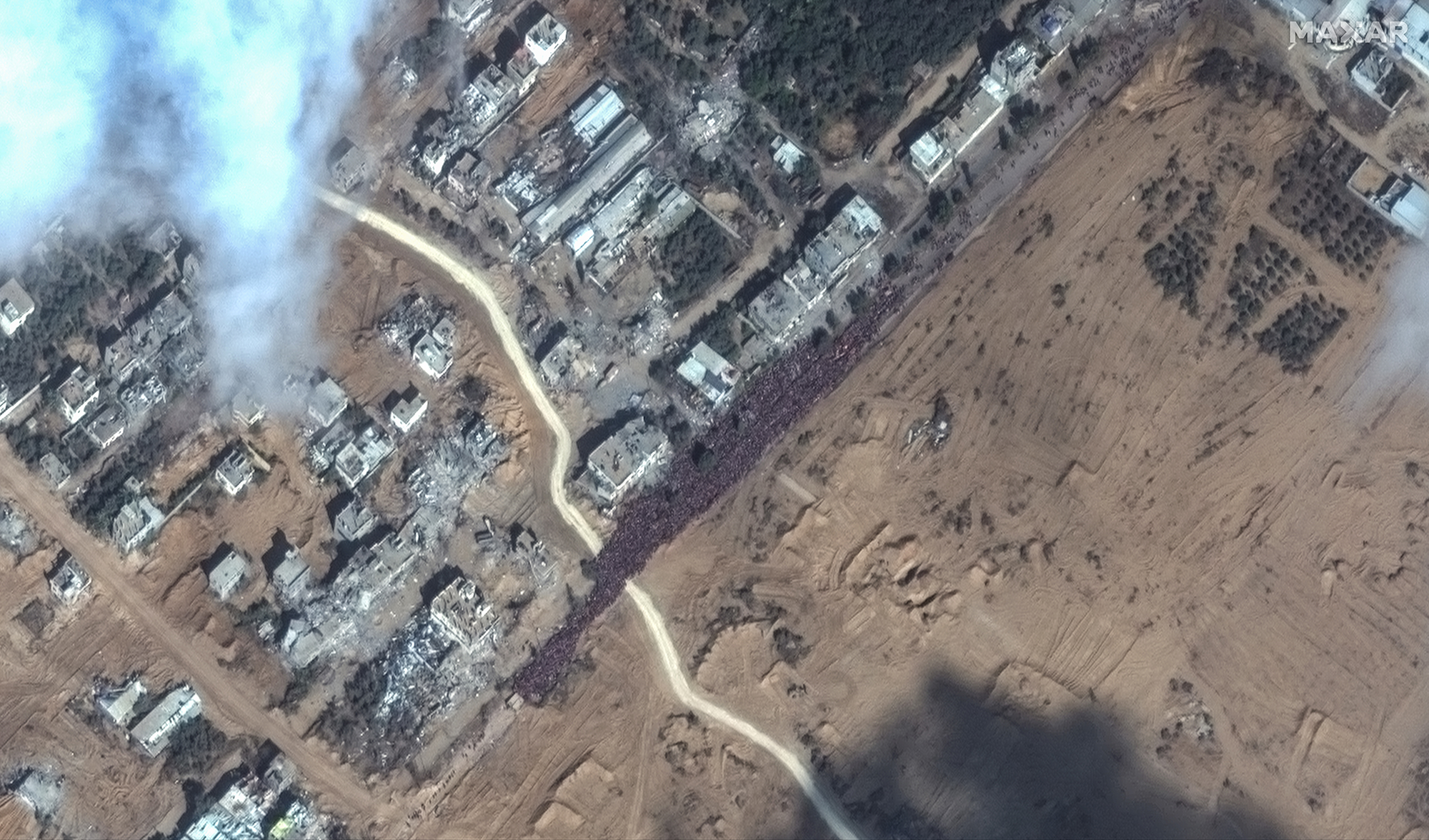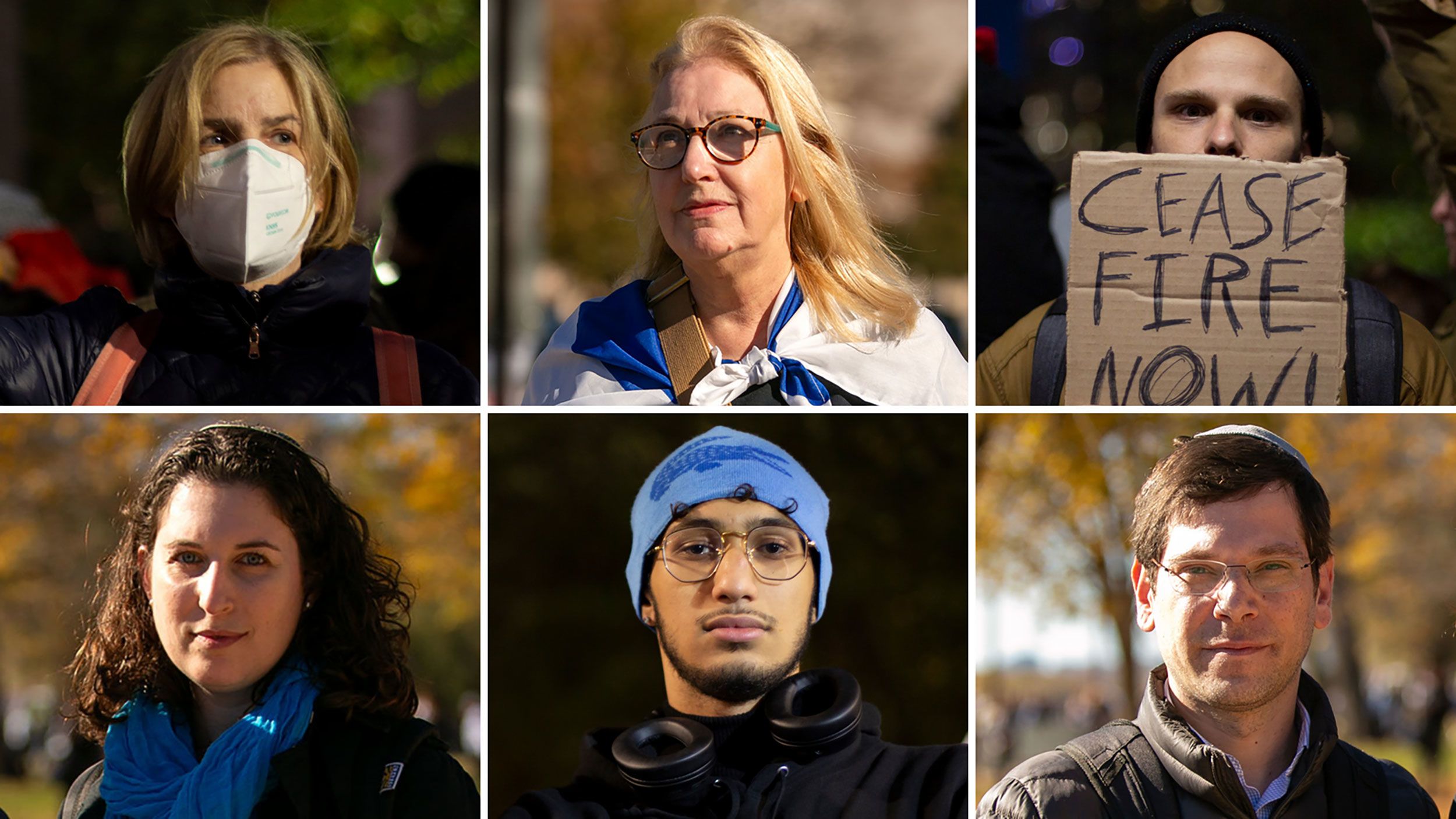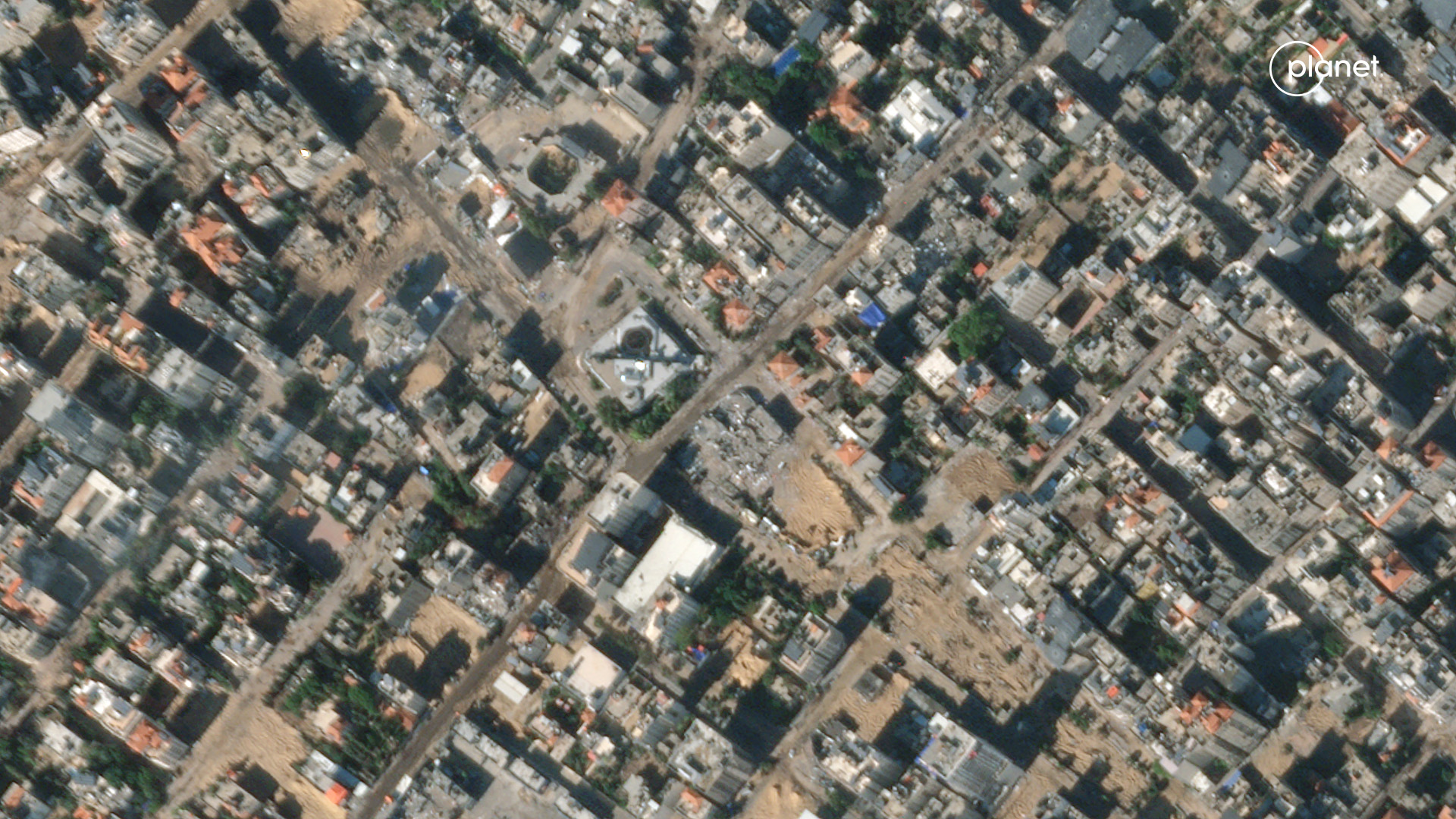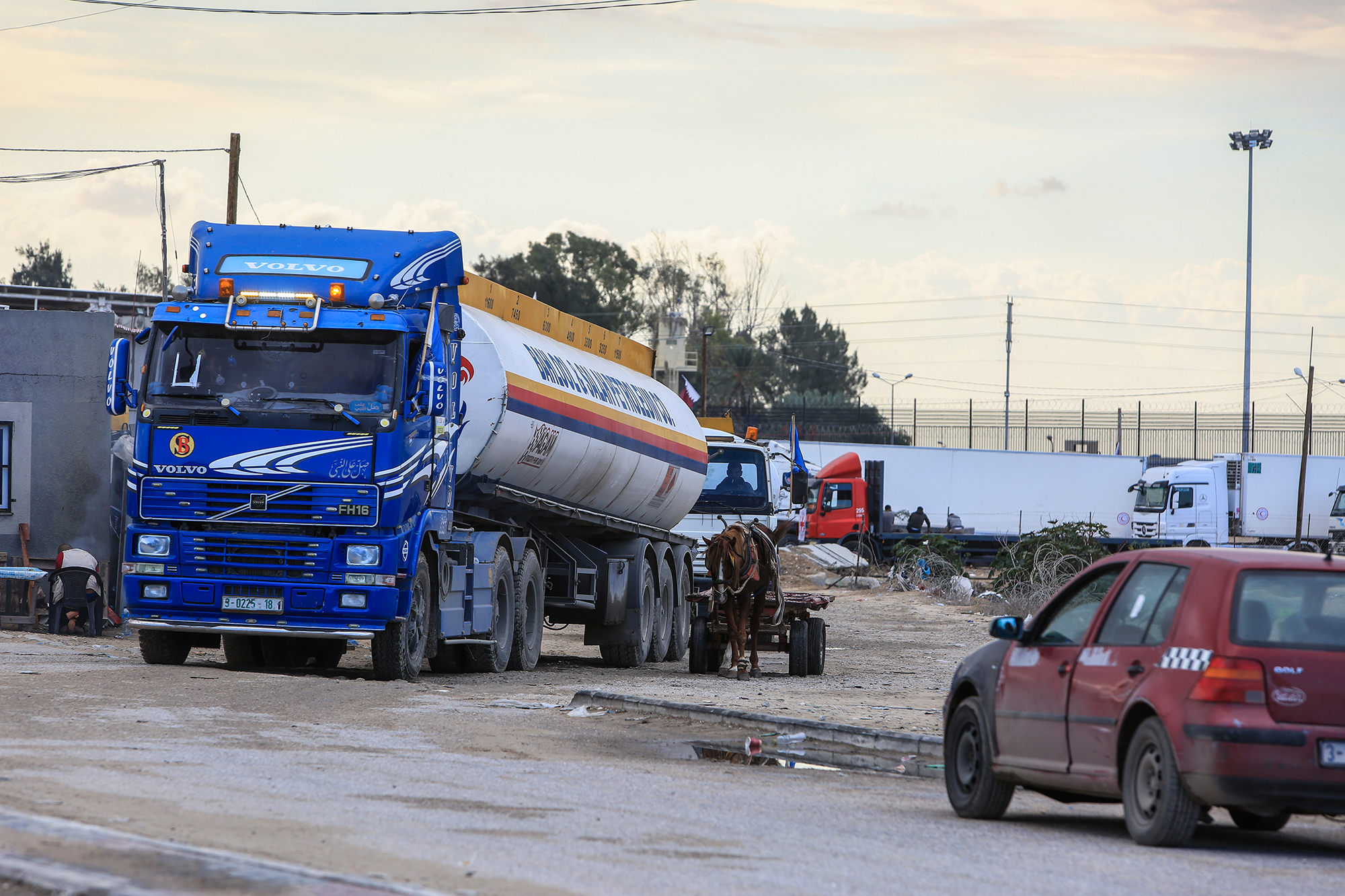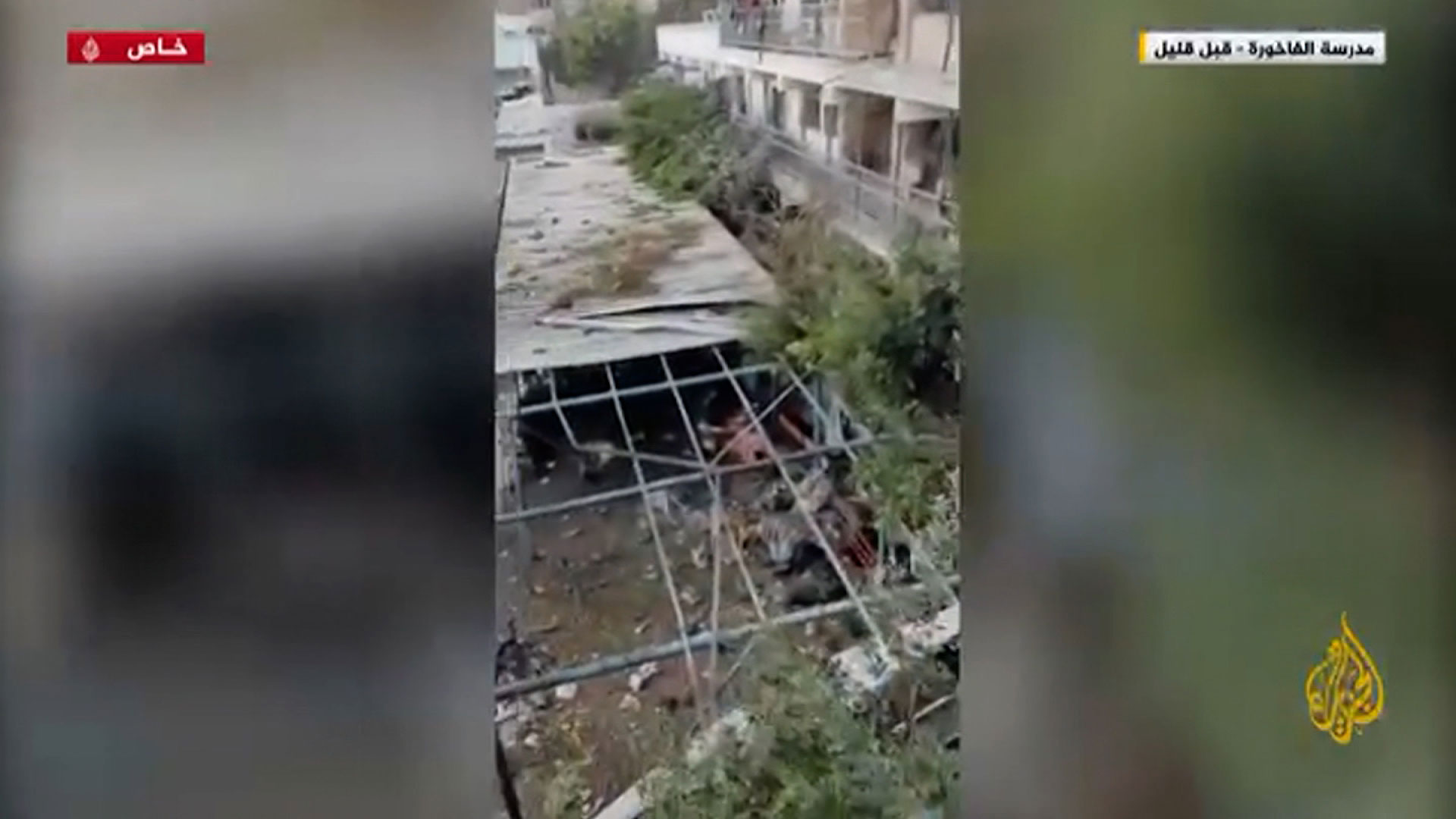
The United Nations confirmed one of its schools in northern Gaza, which was being used as a shelter, was hit on Saturday.
Video from the scene shows bloodied bodies in a series of rooms on two floors of the two-story building. Many women and children are among the dead.
One room appears to contain about a dozen bodies lying on the floor covered in dust. Desks are strewn and smashed up, and a huge hole can be seen in one of the room’s walls. In the courtyard of the building, a canopy roof across a metal structure appears to have been torn off, and there is debris on the ground as well.
A spokesperson for the main UN relief agency in Gaza, which runs the schools in Palestinian refugee camps, confirmed the building as the al-Fakhoura School in Jabalya.
The spokesperson, Juliette Touma, said the relief agency – the UN Relief and Works Agency for Palestine Refugees in the Near East (UNRWA) – was not able to confirm the number of casualties as information was still coming in.
UNRWA chief Philippe Lazzarini, who called the images “horrifying” on X, formerly known as Twitter, said that thousands of displaced people had been sheltering there at the time of the incident.
Touma said the UN did not know what caused the incident, nor who was responsible.
The Israeli military told CNN it was aware of the incident and that it was under review but had no further comment to make.
Egypt and Qatar have already blamed Israel. The Egyptian foreign ministry called it a “bombing,” and said it was the latest in a series of Israeli violations against civilians in Gaza.
Qatar said independent investigators from the UN needed to go to Gaza to examine what it said was the “ongoing targeting of schools and hospitals.” The UN has already called for independent access to Al-Shifa Hospital in Gaza City.
Another school hit: Saturday’s incident was the second time in 24 hours an UNRWA school in northern Gaza had been hit, the agency said.
A school in Zaitoun — which was being used by 4,000 people as a shelter — had been struck multiple times on Friday, Touma told CNN. She said ambulances had reportedly been unable to get to the school, which she said was most likely due to the fighting and the communications blackout.
Lazzarini posted that dozens of people were believed to have been killed in the Friday incident.
“These attacks cannot become commonplace, they must stop. A humanitarian ceasefire cannot wait any longer,” he said.


